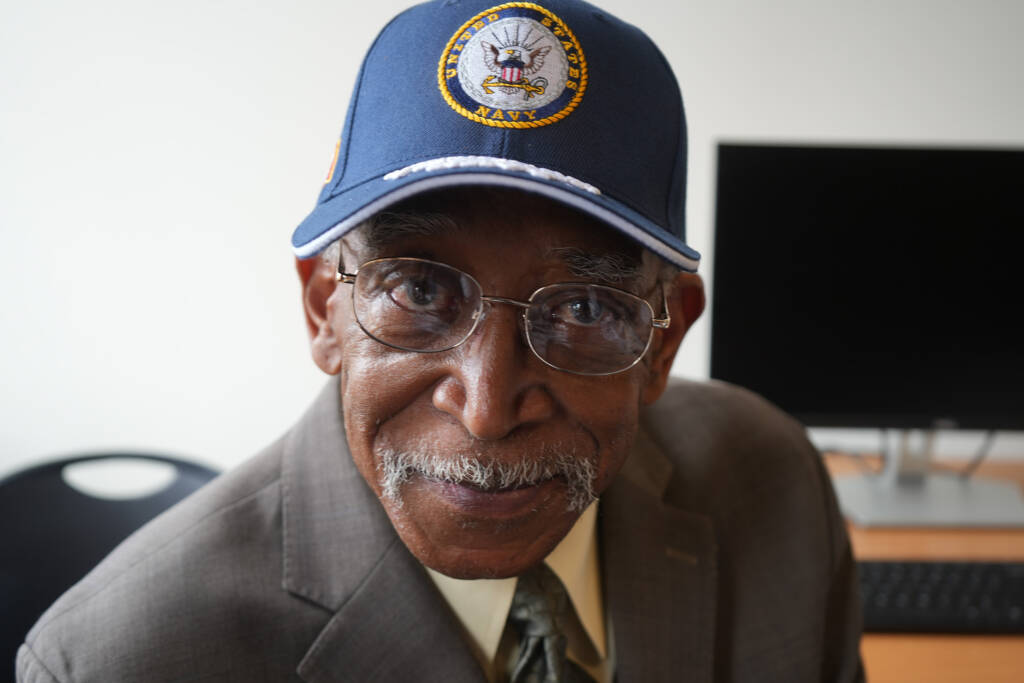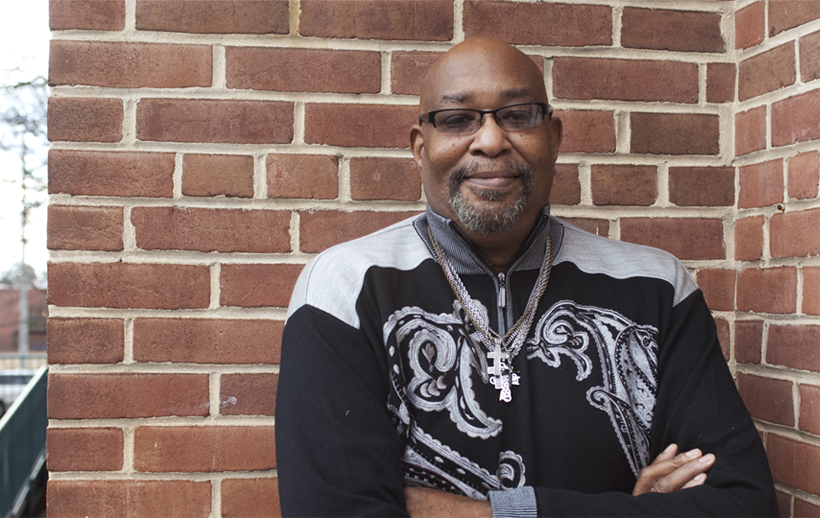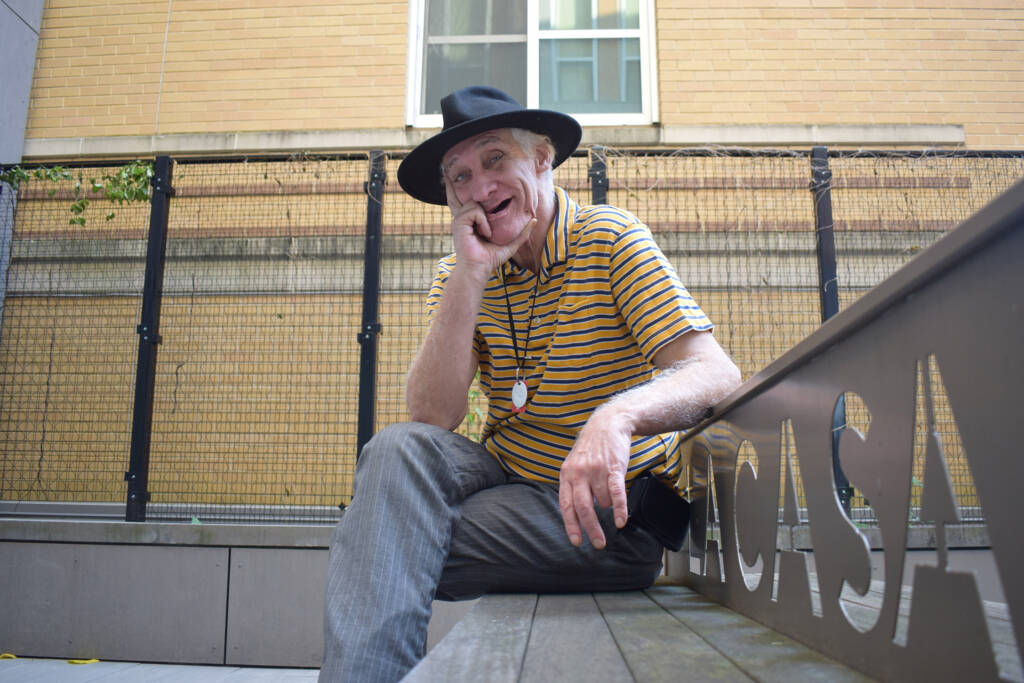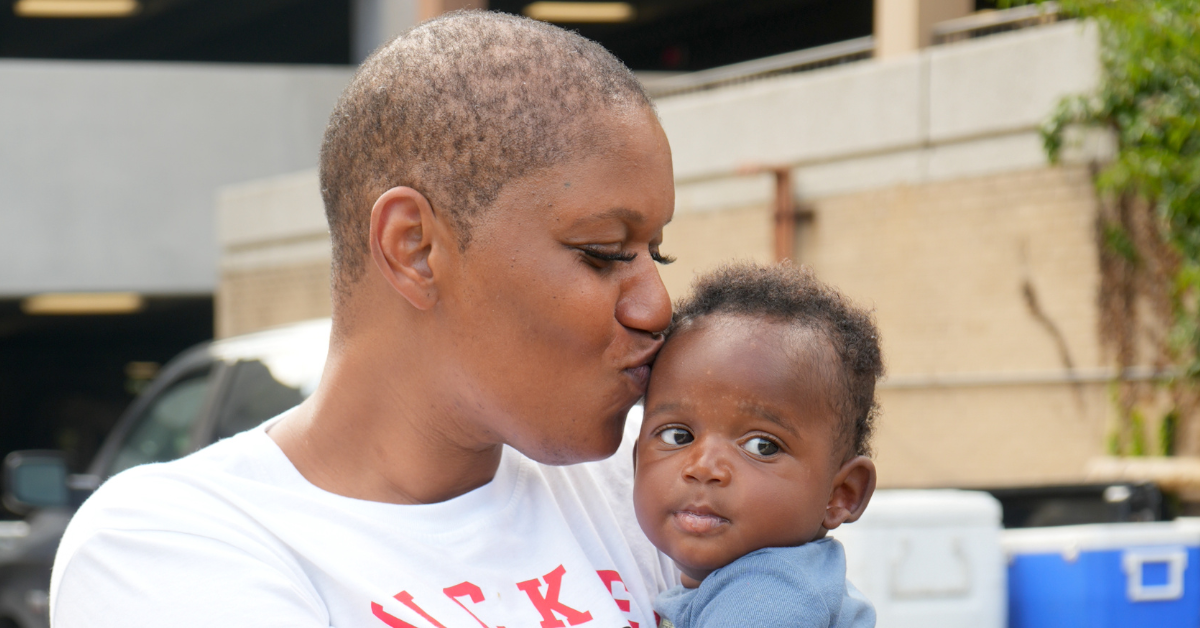Friendship Place empowers individuals who are experiencing or at risk of homelessness to rebuild their lives. Giant Food has supported this nonprofit organization through its Community Bag Program.
Tell us about Friendship Place.
Friendship Place has been around for 33 years. We started as a group of neighbors who saw the unhoused individuals in their community and were determined to do something to help. This original group purchased a van to bring items to people on the street, ensuring they could be safe, healthy, and either warm or cool, depending on the time of the year.
From there, the organization grew organically. We bought our Welcome Center on Wisconsin Avenue a few years after that initial start. The center is open three days a week for people to pick up food and toiletries, do their laundry, or hang out. Most importantly, they are able to access case management services and talk to someone who can help them navigate how to get back on their feet.
We started as a group of neighbors who saw the unhoused individuals in their community and were determined to do something to help.
Next, the city offered some opportunities for us to contract them for permanent supportive housing. So, people have access to vouchers, and our role is to provide case management to help them access landlords and the services they need to stay in one place and gain stability.
After that, we got the opportunity to work with the Veterans Administration. We now help about 700 veterans annually through rapid rehousing and case management services.
Last year, we served just shy of 5,000 people through our programs. At Friendship Place, try to be the place where people can go to hear the word “yes” because too often they’ve heard the word “no.”

What services do you provide to the community?
We operate three buildings, soon to be four, on behalf of the city. Two of those are transitional housing facilities. The idea is to help people connect to a landlord, find employment, and get back on their feet. We also operate a permanent facility for men in Columbia Heights. In an ideal world, we get people to a place where they no longer need us.
In an ideal world, we get people to a place where they no longer need us.
We also started doing employment services through a program called AimHire. We connect people who need jobs to jobs through a model called Employment First. We know everyone has a skill they can use. We won’t make you go through training to get a job. Instead, we will say, “What can you do? Let’s figure out what job you can do with those skills.”
Finally, we do a lot of programming for youth and young adults. These programs run through both our outreach on the street and the Drop-In Center. The goal of our youth programs is to help young adults achieve stability and to empower them to alter the trajectory of their futures.
What sets Friendship Place apart from other nonprofits in your community?
We pride ourselves on being the place where people can hear “yes.” So often, people are told, “No, you have to do this. No, you can’t do that. No, you have to go here. No, you have to do this paperwork.” We try to do the opposite and are pretty good at it. We figure out what we need to do to take you from where you are to where you want to be.
We figure out what we need to do to take you from where you are to where you want to be.
Tell us a story that illustrates the good work of your organization.
A wonderful man named Alan came to us as a participant 10 years ago. He spent six years in homelessness during two different stints. Luckily, he found Friendship Place, and he latched on.
We served him and later offered him a spot on our board. We like to have people with lived experience serve on our board to advise us. After he joined the board, the opportunity arose for him to become part of our staff. What better success story is there than someone who has both benefited from and served with the organization?
This is one story of many. We have so many families that drastically improve their quality of life through our transitional facility. The people who come simply need a place to stay for a few months to get themselves situated. So, the parents can work, and the kids are in school, but they’re in a safe apartment. It’s amazing what can come from taking care of this need.
It’s all about getting people where they want to be. We see people become successful every day.

What is your most outstanding achievement or contribution to the community?
We have become real thought leaders over the last couple of years. We started by hosting meetings with two or three dozen people to discuss our programs. With the pandemic, we could no longer meet in the same way, so we took it all online. Now, we do webinars at least once a month to talk about relevant issues.
At Friendship Place, we have done a lot of training on anti-racism. For four years in a row, we’ve hosted a workshop series on combatting racism. This is particularly important since we know homelessness is often rooted in underlying systemic racism.
People in our programming also go out to a variety of conferences to speak about the work we do. As an organization, we’re proud that people beyond our community know us. They know us because they joined a webinar, training, or conference where we have spoken about our work and groundbreaking ideas.
What do you want people to know about Friendship Place?
We are driven by a caring community. Those of us who work here are so lucky to go to work every day and make people’s lives better. It’s amazing. We love being a conduit for community members who want to do that good but don’t have the time. People have other jobs. They’re doing their own thing. It becomes a mutually reinforcing relationship. We can do the work you care about but may not have time to do.
We love being a conduit for community members who want to do that good but don’t have the time.
We can’t do our work without community support. Though we get generous government support through the city and the Veterans Administration, private fundraising fuels many of our programs. The community empowers us to do this work.

How will you use funds you’ve received from the Giant Food Community Bag Program?
Funds, such as these from Giant Food, do crucial work. It will help keep our Welcome Center open by helping us provide the tools and staff it needs to operate. It also can cover the tools we need for our street outreach, including food, water, hand sanitizer, masks, and socks. Private funds like yours go directly to the people we serve.
Is there anything you’d like to add?
I want to thank Giant Food for always thinking of us. The visibility you provide helps bolster our place in the wider community.

Interview with Chris Rutledge, Vice President of External Affairs
Published March 5, 2024.

